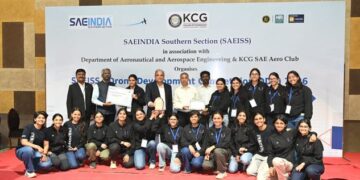CFA Institute, the global association of investment professionals, has released the fourth report in its Future of Work series, exploring the Context, Culture, and Content of Work in the financial investment industry. The report highlights current gaps between the supply and demand for skills in the financial investment industry, examines learning and upskilling trends, and proposes changes to teams to better leverage diverse talent and the combined power of discrete but complementary skills.
More than 81% respondents in India, suggest that they are inclined towards an upliftment in the skills of data visualization. Data visualization helps in simplifying complex quantitative information into easily accessible representations such as graphs and charts. It has become an integral part of any application development providing Interactive reporting and KPI dashboards. While the Indian audience is keen on developing the necessary skill set, according to the report, the key disruption is the introduction of new analytical methods, including artificial intelligence and machine learning.
Advancing technologies and the hybrid working are continuously changing the shape of careers in finance. The Future of Work in Investment Management: The Future of Skills and Learning draws on CFA Institute survey data to identify the skills and learning equation for building talent and careers in a rapidly transforming investment industry. Commenting on the report Arati Porwal, Director Society Relations, CFA Institute in India said, “India, much like the rest of the world, has a dynamic and complex financial investment landscape. According to CFA Institute’s latest Future of Work report on skills and learning, skills of high interest for investment professionals in India include an understanding of artificial intelligence, proficiency in data analysis and visualization, as well as knowledge of sustainability issues. In the new normal, due to changing perspectives and ways of working, having the latest skills is critical to developing a competitive edge and strong expertise.”
“The world of work has been experiencing dramatic changes, and as the investment industry competes for the best talent, an opportunity exists for investment organizations to reset and reframe their focus on talent development programs that match the pace of change. It’s not only new markets, asset classes, data sources, and investing techniques that are demanding a fresh focus on skills and learning. For many, hybrid working has opened a new way of thinking about the employer-employee relationship,” said Rebecca Fender, CFA, Head of Strategy and Governance for Research, Advocacy and Standards, CFA Institute.
Other Key Findings across the globe
- Career paths are becoming more varied and characterized by more career breaks and greater flexibility. The primary influences on career path developments are from the technology sector (via fintech) and entrepreneurs
- Technical skills are most important at career entry, with soft skills, leadership skills, and T-shaped skills (a combination of deep knowledge in a single domain and wider knowledge in other fields and the ability to connect them) growing in importance over time
- Managers and leaders will need to adapt their skillsets to succeed in a more flexible and dispersed work environment
- Sustainability and data visualization have seen the highest overall increase in interest levels over the previous two-year period
- Employers seek a combination of skills, grit, and experience
To access The Future of Work in Investment Management: The Future of Skills and Learning, visit (link).












